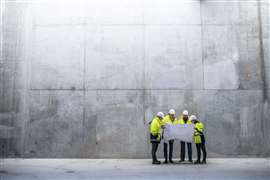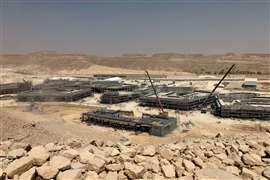Contractors: ‘new deal’ needed for global energy transition
19 October 2023
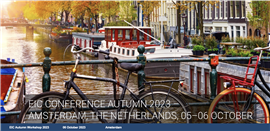
At this year’s Autumn Conference of the federation of European International Contractors (EIC) a consensus was formed that a ‘New Deal’ between politics and industry is needed to create a win-win situation that rewards contractors and suppliers adequately for providing the necessary infrastructure that will facilitate the global energy transition.
The global energy transition raises the defining questions of our time. As much as it is an economic risk, it is also a geopolitical and environmental challenge: How to successfully switch from fossil fuels to renewable energy sources, without creating new dependencies, both in terms of technologies and geopolitics?
With the ongoing living cost crises, high inflation rates and shortages in the supply chain, the question arises how the future renewable energy mix that remains bankable for developers, affordable for consumers and profitable for the supply side will look like.
‘Never take your hopes for reality’ Jonathan Holslag, Professor at the Free University of Brussels and former advisor to the European Commission, reminded the EIC audience. Expressing a reserved opinion on the accomplishments in the energy transition he pointed out what is needed to succeed and where Europe stands in comparison to its competitors from overseas.
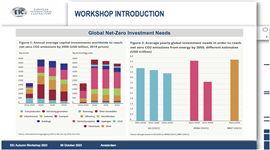 Global net zero investment needs
Global net zero investment needs
Increasingly, Europe’s technological edge is lost, and the leadership role is falling to the US and China in industries where Europeans were pioneers, such as wind and solar or electric vehicles, thereby losing the accompanying investments. China, in particular, is a real test to the European industry because, as a system competitor, it has managed to extract the Western technological edge and it has the ability to undercut European competitors on price.
The day will come when the European industry has to make up its mind whether to consider the Chinese state-run industry as a competitor, which should not be equipped with the latest European technologies, or whether to continue the collaboration.
Future of global energy
Bram Smeets gave a sneak preview of McKinsey’s upcoming Global Energy Perspective 2023 report. He conveyed three key messages: Firstly, energy markets have gone through unprecedented shifts in the past two years, which has triggered a broadened debate around the energy transition; secondly, for the coming years and decades, substantial shifts for the European energy landscape are foreseeable, even in scenarios that assume a modest transition; thirdly, an accelerated transition faces major bottlenecks; contractors are directly affected but can also make major contributions to infrastructure unlocks.
He concluded that the world is in need of additional capacity and renewable energy projects to implement the global energy transition.
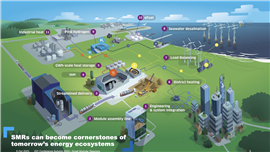 Small Modular Reactors could make nuclear projects more manageable
Small Modular Reactors could make nuclear projects more manageable
Speakers from the energy sector highlighted that Small Modular Reactors could make nuclear projects more manageable and decisively lower risks and capital requirements. Hydrogen would offer colossal potentials, and the technology has been around since the 19th century and could be delivered at scale. However, sustained policy and financing support is needed.
Energy islands bring together technologies, primarily wind and hydrogen, and outsource land usage to offshore locations they save on cost and use the synergies of technologies. The high level of capital required and the momentous tasks to replace existing fossil-fuelled energy with renewable technologies such as Small Modular Reactors, Hydrogen or offshore wind and Energy Islands mean that the set policy goals are ironically relying on a, as yet, inhospitable construction environment.
Global energy transition
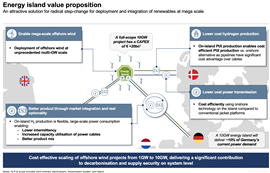 Energy islands bring together technologies, primarily wind and hydrogen, and outsource land usage to offshore locations
Energy islands bring together technologies, primarily wind and hydrogen, and outsource land usage to offshore locations
During the panel discussions, it became clear that there are certain prerequisites to implement the energy transition successfully in Europe and to maintain the European competitive edge internationally.
It needs a concerted approach by politics, finance industry and the real economy, including further deregulation and accelerated licensing and a fair risk and reward distribution amongst all project stakeholders, including the use of collaborative contracting models that facilitate partnership and teamwork along the value chain.
EIC President Benoît Chauvin pointed at the opportunities for European international contractors associated with the global energy transition. The EU climate goals aim to boost the competitiveness of Europe’s green industries, including the construction industry, as the EU was determined to become the forerider of reducing global emissions, slowing global warming and yet retaining its economic wealth.
Chauvin called for an unprecedented collaborative effort between the public and the private sector to achieve the ambitions of a carbon neutral energy ecosystem and, at the same time, to remain competitive in the global market economy.
STAY CONNECTED


Receive the information you need when you need it through our world-leading magazines, newsletters and daily briefings.
CONNECT WITH THE TEAM









